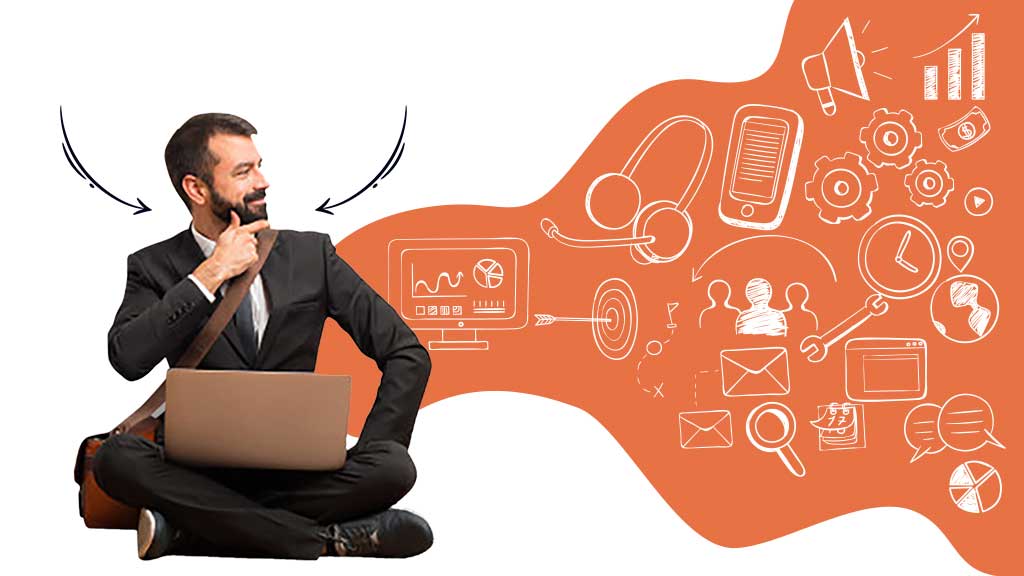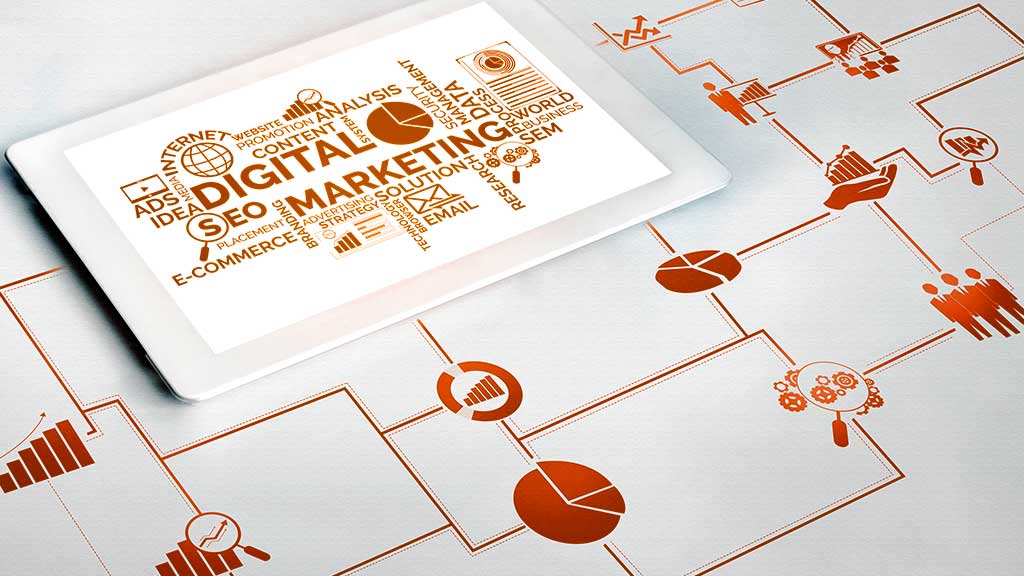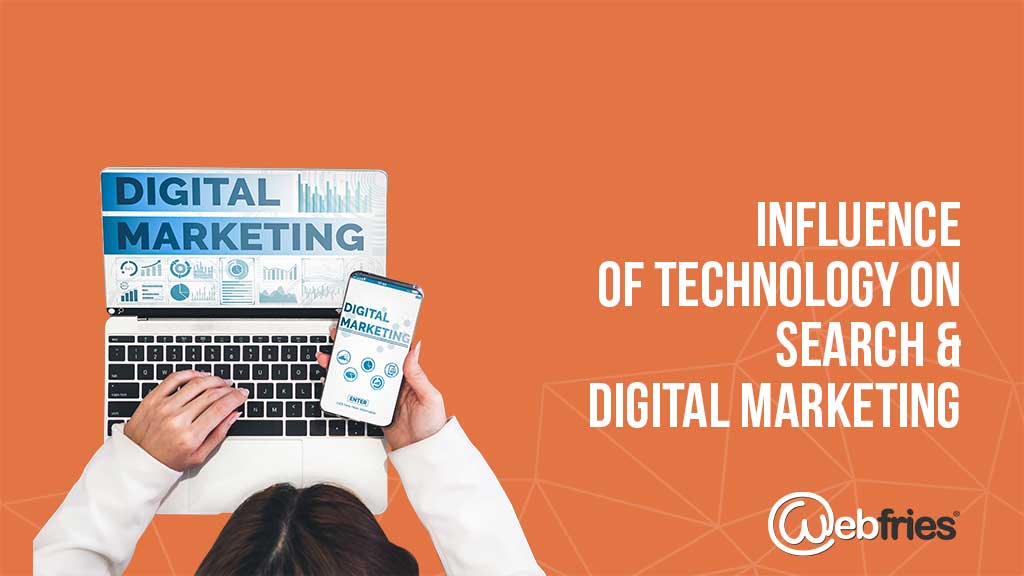The other day, I came across this question on Quora, “How has technology changed search and digital marketing?” It got me thinking. Marketing has gone through multiple evolutions over the past few decades. First, there was print marketing, and then came radio and television marketing. The internet revolution in the early 2000s opened up marketing to digital technologies, and it has never been the same.
Over the last two decades, digital marketers, digital marketing agencies and search engine optimizers had to update their approach and strategy with every new technology. Technology has had a massive influence on digital marketing. Marketers who failed to keep up with the rapid growth of technology fell out of the picture.
Very often, marketers and brands are eager to know what the future of marketing holds? Without a crystal ball, we cannot see what the future of digital marketing will look like. But, we can make intelligent predictions – and for this, we need to look back before we can go forward. In this guide, we look at significant technological developments that have played a crucial role in the evolution of digital marketing to predict how the future will look.
SEO has come a long way since the Era of Keyword Stuffing.

Just a decade ago, SEO was a different game. Then came Google’s infamous Panda update in 2011, and nothing will be the same ever again.
At the start of this decade, SEO companies managed to rig the game with keyword stuffing. Google couldn’t do anything about it. However, with Panda, Google defined Black Hat SEO tactics and started to penalize the riggers. On the other hand, the Panda update started to reward the hard-working ants of SEO – the marketers who provided value to their audience.
The phrase “Content is King” became popular around this time, and SEO went through a 180-degree transition. From appealing to bots, it became all about publishing content that adds value to the target audience. Search marketers who published high-quality content were awarded the coveted Page 1 rankings on Google.
Google, the leader in the search industry, then started updating its algorithms regularly. Search marketers had to update their strategies and practices to stay relevant. Companies that failed to keep up with these changes fell out of the picture.
In 2014, the next big update of Google – the Pigeon shone the spotlight on local search. Google rewarded well-optimised sites by rewarding them with better rankings on local SERPs. Location-specific searching became the norm with the advent of smartphones, and search engine marketers had to restructure yet again.
Today, to rank high on Google, your site must be authentic, add value, organic, and safe. You cannot get away with just peppering your content with keywords. Search engine marketers who grasped this paradigm shift are reaping the coveted page one ranking in 2020.
Mobile-first is the Mantra of this Decade

Smartphones have indeed undergone a paradigm leap in the last decade. Can you believe that it was only ten years ago that most of us purchased our first ever smartphone? Today, we cannot imagine spending a few minutes without staring into the screens of our omnipresent digital companions.
From liking each other’s posts on Instagram to trading stocks, our phones have become an integral part of our lives. The smartphone revolution has had an enormous effect on how digital marketing has changed over the years. Mobile advertising is with us every second of our waking hours. Today, it’s impossible to browse through your Facebook feed or play a game without stumbling on a digital ad.
In 2018, Google paved the way for the mobile-revolution in search marketing by including mobile-first indexing as one of the top-ranking factors. That means Google rewarded higher ranks to sites that are optimised for mobile users. Besides, the mobile-first index, Google also started including mobile page speed as one of the prime ranking factors.
To stay competitive, search marketers had to adapt their practices to the mobile marketing revolution.
Personalization is everything

Gen Z, aka the digital natives, is the first generation that grew up with the internet. To appeal to this tech-savvy demographic, brands could no longer rely on traditional advertising. This opened the wormhole to – Personalisation in advertising.
Big data become one of the biggest differentiators in the world of marketing. Digital Marketing Agency had to step outside the box and think creatively to generate unique experiences for customers. Besides traditional advertising content, user-generated content became a magnet for pulling in new customers. 84% of millennials respond that user-generated content plays a crucial role in influencing their purchasing decisions.
To give an example of the user-generated campaign’s effectiveness, you need to check out GoPro’s photo of the day campaign. GoPro posts the best customer sent-in photo on its social media page every day. This not only highlights the digital camera features to prospective customers but also tempts them to purchase the camera. This is an excellent example of how brands drive greater interaction with brands.
Personalization has strengthened the relationship between the brand and the customer. Marketers who include personalization in their arsenal win a competitive edge over their peers.
Transparency – Matters More than Ever

Earning the trust and respect of customers is the biggest challenge for brands in today’s digital era. Over the last decade, the social media sphere rapidly transitioned from a friendly space to a distrustful one. One mistake by a brand – and the reputation you have built over the years can be torn down with a single hashtag.
The Cambridge-Analytica scandal shows how even giants like Facebook can suffer a huge blow when they fail to be transparent. Privacy laws, security breaches are something that all marketers should be cautious about. Today’s consumers are more intelligent and tech-savvy than any previous generation. For them, it’s no longer about the price or features of a product. Besides these two crucial factors, customers analyse other factors like – the brand’s sustainability, transparency, environmental consciousness, and more.
This is a massive challenge for Digital Marketing agencies. Today, 70% of the buyer’s journey is complete before making initial contact with the brand. Consumers can quickly tell the difference between an authentic post/review and sponsored content.
Marketers need to understand that customers are the ones who are in the driving seat when it comes to online marketing campaigns. Digital Marketing Agency has to focus on creating campaigns that engage with customers transparently, build real relationships, and win customer loyalty. The more transparent you are with your customer, the more you will earn their loyalty over the years.
The Rapidly Changing Landscape of Digital Marketing and Search Optimisation

“To improve is to change. To be perfect is to Change Often – Winston Churchill.”
If there is one lesson that I have learned in all these years as a digital and search marketer, “change is the only constant.” Yes, that may sound clichéd, but changes in the digital landscape never stop. With each new technology, digital marketing techniques continue to develop and evolve.
Today, all brands – big or small – have a web and social presence. To stay ahead of your competitors in the hyper-competitive online space, you need the help of a professional search marketing firm that continuously refines its digital marketing strategies to keep up with the evolving technologies.
Changes in digital and search marketing are the norm. However, instead of being overwhelmed by these changes, you can use them to your greatest advantage. For that, you need to remain responsive and evolve faster than ever.
At Webfries, we are technology ninjas. As a leading digital marketing agency in Gurugram, we don’t use technology just for the sake of it—we use it strategically to help our clients stay ahead in the ever-evolving digital marketing landscape.
To know more about our practices, just give us a ring or drop in a line. We would love to get the conversation started.



